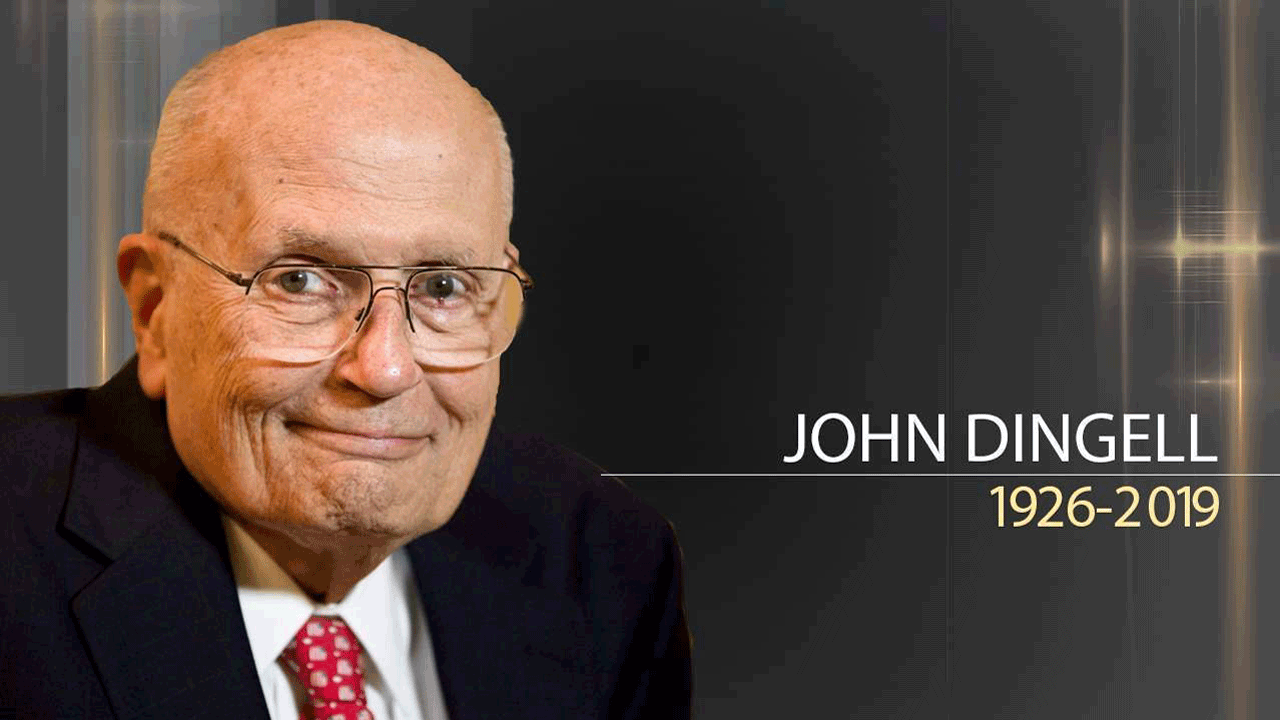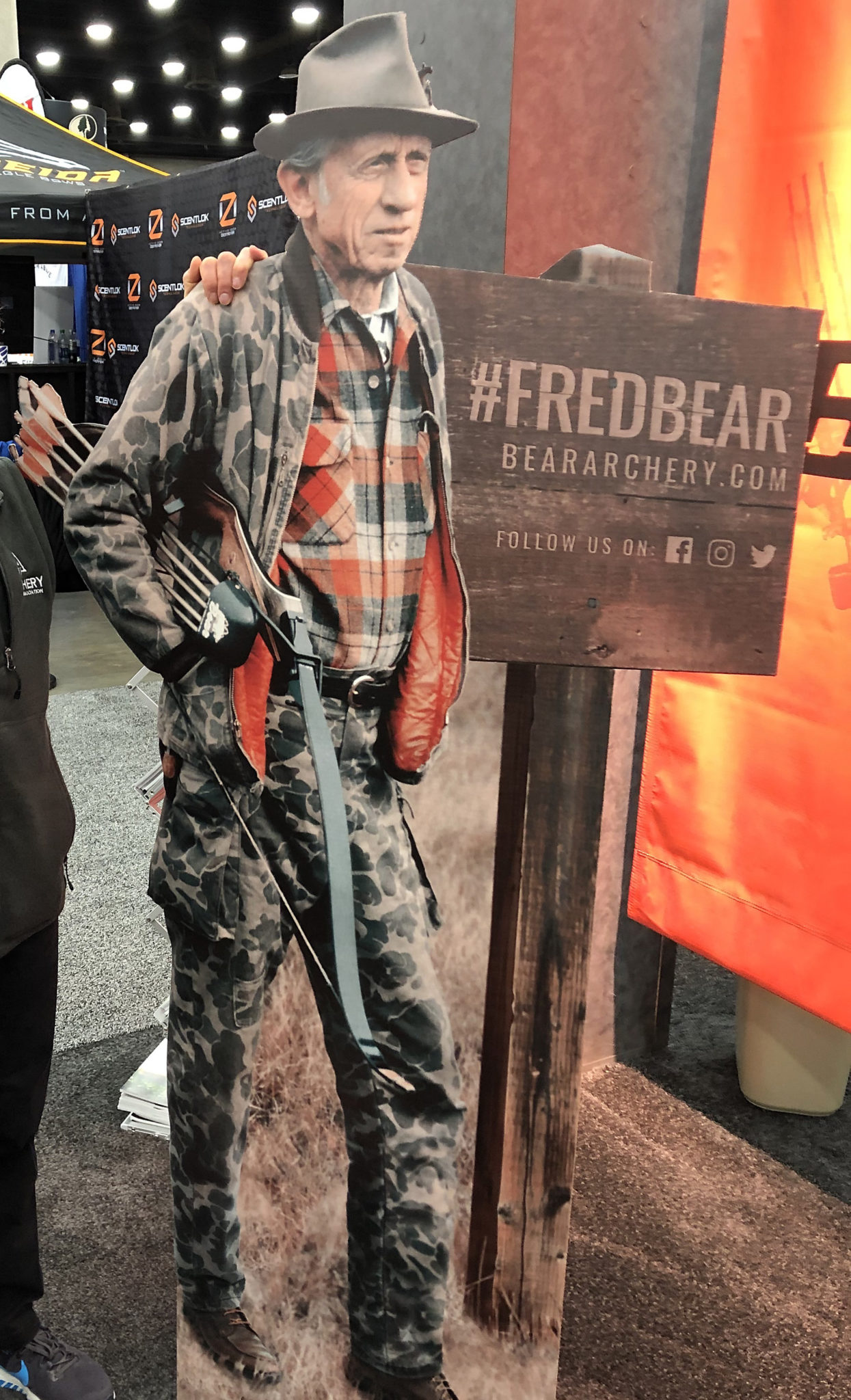Motorists seldom brood over a bridge’s namesake as they cross its span, and few picnickers ask why a favorite park bears the name of someone long lost to their era.
We too often take for granted vital facilities, public lands and shared conveniences, acting as though they’ve always been here to serve and please. But great people worked together to create such benefits and, occasionally, grateful people honor greatness by naming parks, bridges or buildings after those inspiring them.
In that case, Congressman John Dingell, D-Michigan, will be honored often the next few years as Americans appreciate history’s longest-serving and possibly hardest working member of the U.S. Congress and Senate. Dingell, 1926-2019, died Feb. 7 at age 92, and served 59 years in the House of Representatives from 1955 to 2014. He distinguished himself as a nonpartisan hunter-conservationist who understood that compromising – not dividing and conquering – is the force that makes our democracy great.

Congressman Dingell out-lived, and out-served, many others in his work for the country. (Photo: RadioResultsNetwork)
As Congressman Dingell recently told a voter via Twitter: “No matter our party affiliation, we are all in the same boat. We cannot turn to our neighbor and say, ‘I’m sorry, but your end of the boat is sinking.’”
Dingell’s fellow lawmakers called him “Big John” and “The Truck” because of his 6-foot-3-inch height and bulldog temperament. He served under every U.S. president from Eisenhower to Obama, and served for decades as chairman of the Energy and Commerce Committee, overseeing everything from transportation to consumer affairs and public health. When folks asked Dingell to define his committee’s responsibilities, he pointed to a photograph of the Earth taken from space.
Those studying photos of Dingell’s office appreciate portraits above his desk of Franklin Roosevelt, John Kennedy, Hubert Humphrey, Gerald Ford and Jimmy Carter. Hunters extend the appreciation further by admiring portraits of mountain goats and landing ducks, and mounts of a giant sailfish and young white-tailed buck. And they debate whether the congressman’s mounted drake is a woody or mallard.
More impressive, though, is Dingell’s long list of legislative accomplishments on behalf of hunters, conservation and the environment. The National Wildlife Refuge Association credits him as chief architect of the Clean Water Act (1972); and the author of the Endangered Species Act (1973), Marine Mammal Protection Act (1972), National Environmental Policy Act (1970), and Refuge Administration Act (1966). The association recognized Dingell’s contributions by giving him its first “Theodore Roosevelt Lifetime Achievement Award” in 2014.

Rep. John Dingell worked with Rep. Paul Ryan, R-Wisconsin, to ensure archery manufacturers competed on fair terms. Ryan, now retired, remains a serious archer and bowhunter.
Ducks Unlimited notes that Dingell served a record 45 years on the Migratory Bird Conservation Commission, and helped write and pass the North American Wetlands Conservation Act (1989). That legislation helped fund over 2,833 projects on almost 30 million acres in all 50 states, and parts of Canada and Mexico.
Congressman Dingell also broadened his family’s mark on the nation’s signature funding programs for fish and wildlife: the Pittman-Robertson Wildlife Restoration Act (1937) and the Dingell-Johnson Sport Fish Restoration Act (1950), which was sponsored by his father, John Dingell Sr.
The SFRA exacts a federal sales tax on fishing tackle, electric motors and fish-finding electronics, as well as import duties on yachts and pleasure boats. Those funds are then allocated to state agencies to manage fisheries and fund research. The younger Dingell helped amend the D-J Act in 1984 to subject marine fuels, pleasure craft and more fishing tackle to the tax.
John Dingell Jr. also ensured handgun-buyers become part of Pittman-Robertson’s legacy by amending the act in 1970 to include handgun sales. Dingell helped amend the act further in 1972 to include bows, arrows and archery accessories.
Congressman Dingell was famous by then for helping Michigan’s auto industry and its workers, but he worked just as faithfully to help the archery industry and its members. Dingell’s initial attempts to include archery gear in the P-R Act stalled in 1971 when some manufacturers resisted. Undaunted, he worked with fellow Michigan resident Fred Bear, the legendary founder of the Bear Archery company, to broaden industry support for the 11 percent tax.
President Nixon signed that amendment in 1972, ensuring archers and bowhunters gained a voice in wildlife-management, hunter-education and range-construction programs. Money from the P-R Act began flowing to state wildlife agencies in 1975.

Rep. John Dingell worked with Fred Bear in the 1960s and early ’70s to include bows, arrows and bow accessories in the Pittman-Robertson Wildlife Restoration Act, which imposes federal excise taxes on those products.
When inadvertent loopholes in the ’72 amendment caused unfair taxation for archery retailers in the 1990s and domestic archery manufacturers in the early 2000s, Dingell worked with the industry to fix the problems.
“John Dingell always took time to hear our issues and address them,” said Jay McAninch, president/CEO of the Archery Trade Association from 2000 to 2017. “He stepped up to help us from 2002 to 2004 to stop the loss of P-R funds from imported arrows that entered the country tax-free. He worked with Rep. Paul Ryan (R-Wisconsin) and Sen. Orrin Hatch (R-Utah) to end that problem.”
McAninch said Dingell understood bowhunters, and the importance of bowhunting to his Michigan constituents. “Dingell was always quick to support state agencies and any organization involved with hunting and wildlife, whether it was Ducks Unlimited, Pheasants Forever or the National Wild Turkey Federation,” McAninch said. “He was a stalwart for conservation and Pittman-Robertson.”
Dingell’s bipartisan work to negotiate compromises and keep government functioning won him widespread praise for “moral courage.” One colleague, Rep. Timothy E. Wirth, D-Colorado, told the Washington Post in 1983 that Dingell was the House’s best legislator.
“The reason for that is his remarkable capacity to live with ambiguity, which you have to do up here,” Wirth said. “The world isn’t simple. There are so many competing interests, each with a bit of the truth. If you try to stake everything out in terms of black and white, it will kill you.”
Dingell rose above petty party loyalties. Although Sen. Albert Beveridge, R-Indiana, (1862-1927) died a year after Dingell’s birth, the two lawmakers from neighboring states could have shared Beveridge’s thoughts on political parties:
“A party can live only by growing. Intolerance of ideas brings its death. An organization that depends only upon reproduction for its vote … is not a political party, but … a tribe held together by blood and prejudice.”
Some who knew Dingell said he was the most powerful man in Washington to never become president. Our nation was likely the lesser for it.

 By
By 



